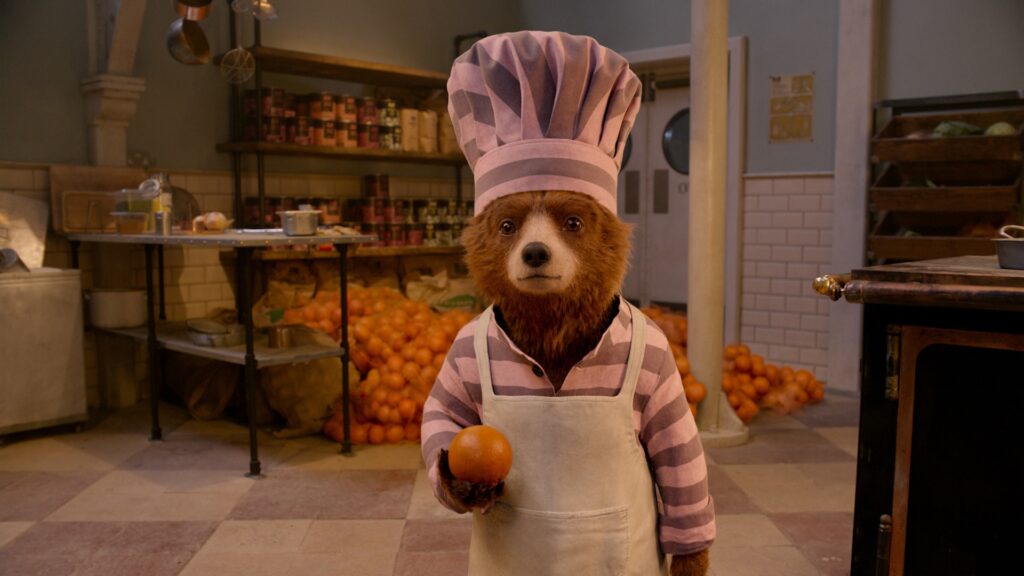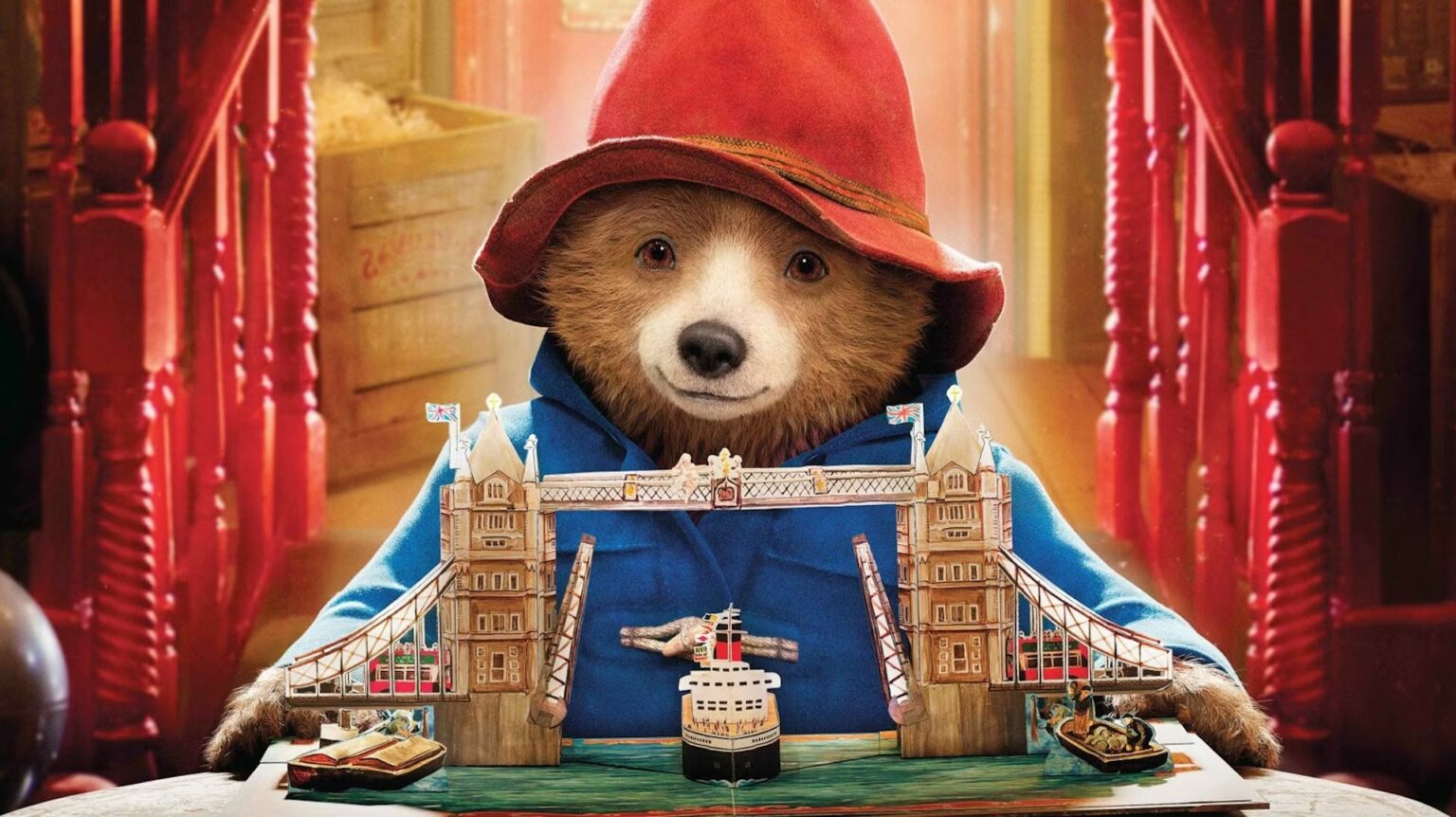The following contains spoilers to 2017’s Paddington 2.
Family-friendly movies have a little something for everyone—charming characters, heartwarming tales with happy endings, and even a sly joke or two that only the adults will catch. These films are packed with moments that make them a joy for all ages.
While kids’ movies usually don’t make it to film school curriculums, 2017’s Paddington 2 breaks the mold. With its near-perfect structure, it’s the rare family film that’s not only a hit with audiences, but a standout example of storytelling craftsmanship.
Paddington 2 saw the beloved bear return to the big screen, this time with the goal of earning enough money to buy a special book for his Aunt Lucy’s birthday. But the book is stolen by Phoenix Buchanan—and Paddington is framed and jailed.
It is a simple plot, but the execution by co-writer and director Paul King earned the film a higher Rotten Tomatoes score than Citizen Kane (at 100% and 97%, respectively).
There are a few reasons why Paddington 2 is the greatest movie of all time (sorry, Orson Wells).
Paddington 2 Has a Perfect Three-Act Structure
Most novels, movies, and TV shows follow the oldest narrative structure known to man: the three-act structure. This structure breaks the story down into three distinct sections that are anchored by plot points that drive the narrative’s actions.
Whether you are aware of it or not, we all know this structure when we see it:
- Act One: The setup
- Act Two: The confrontation
- Act Three: The resolution
Most films follow this structure—but none do it as well or as seamlessly as Paddington 2. The movie starts by setting up the conflict, which is that Paddington wants to get his Aunt Lucy a birthday gift. However, Phoenix also wants the book because it leads to a great treasure. When the book is stolen from the shop, Paddington is framed and sentenced to prison.
The second act is pushed into motion by the shocking twist that a small bear is not in prison with a bunch of tough and rough men. However, he teaches them how to bring joy into their lives with the magic of orange marmalade. Outside of prison, the world is less bright and exciting with Paddington in it, and the family devises a plan to get Paddington out.
Paddington is tricked into a prison escape, reunites with his family, and heads into the film’s climax, which wraps up with a happy ending.
But what makes this structure so seamless is how King introduces ideas earlier in the movie and then allows them to pay off in the end.

Setup and Payoff
Setup and payoff is a storytelling technique where seemingly irrelevant details or statements become crucial to the story later on. This subtle form of foreshadowing demonstrates a writer’s skill in making every detail count.
As an audience member, this can feel like a great reward for paying attention to everything happening on screen. Paddington 2 rewards audiences for staying engaged.
Paddington 2 creates a great setup and payoff by reintroducing the family in a memorable table scene. We learn what each character has been up to between movies through their actions, props, or a single line of dialogue. In addition to building character, it gives us insight into how Paddington has changed their lives. These little moments have a huge impact later in the story’s climax.
This is one of the more notable examples in the movie, but every scene provides something for the audience to hold onto, leading to a satisfying payoff later in the story.
While other aspects make Paddington 2 a great movie (including a standout musical number from Hugh Grant’s character at the end), the screenwriting is what makes the sequel a perfect movie.
From nailing the three-act structure to the satisfying payoffs, there is a lot screenwriters can learn from King’s sequel.
Will Paddington 3 live up to the writing skills of the second movie?
We’ll find out it comes out in January 2025.
Read More: Quentin Tarantino Praises “Joker: Folie à Deux” Message to Audiences and Hollywood
This article is for informational purposes only. Trendy Matters has no affiliation with any of the brands or individuals mentioned. The views expressed in this article are solely those of the author.


